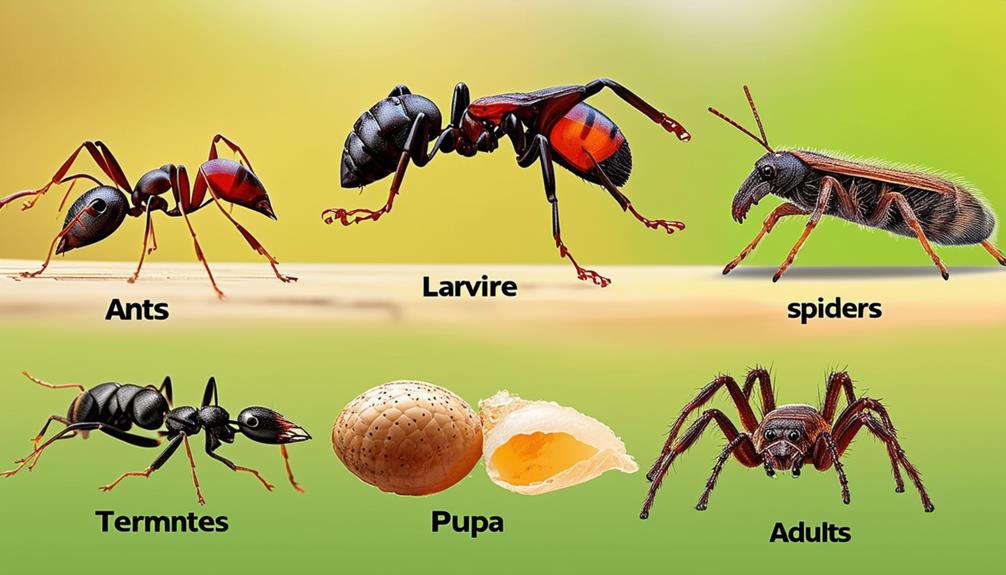In the city of St. George, Utah, the significance of pest control education cannot be overstated. By raising awareness about the potential risks and diseases associated with pests, we aim to foster a sense of belonging and protect the well-being of our community.
With the prevalence of mosquito-borne illnesses like West Nile virus, Zika virus, and dengue fever, it is crucial to educate the public on effective mosquito control methods, such as source reduction and targeted insecticide application.
Additionally, knowledge about the health hazards posed by rodent infestations, cockroach invasions, and encounters with stinging insects can help prevent the spread of diseases and safeguard public health. Through promoting proper sanitation practices, routine inspections, and strategic pesticide usage, pest control education plays a vital role in maintaining a healthy and pest-free environment in St. George, Utah.
Key Takeaways
- Raises awareness about potential risks and diseases associated with pests
- Fosters a sense of belonging and protects the well-being of the community
- Crucial in preventing the spread of mosquito-borne illnesses like West Nile virus, Zika virus, and dengue fever
- Promotes proper sanitation practices, routine inspections, and strategic pesticide usage
Importance of Pest Identification
The accurate identification of pests is paramount in ensuring effective pest control measures and mitigating potential health risks. Proper pest identification provides valuable information that enables a pest control company to employ the most appropriate and targeted control methods.
For example, if a homeowner is experiencing termite problems, identifying the specific species of termite allows for the implementation of targeted termite control strategies. Regular inspections and early detection of pests are crucial in preventing infestations and minimizing damage.
By accurately identifying pests, individuals can take proactive measures to prevent infestations and protect public health. Additionally, pest identification helps in understanding the associated health risks. For instance, recognizing the presence of mosquitoes or cockroaches allows for the implementation of effective control measures, reducing the risk of diseases such as dengue fever or asthma.
Therefore, education on pest identification is essential in promoting effective pest control practices and safeguarding public health.
Understanding Pest Behavior
Proper pest control education in St. George Utah entails delving into the intricacies of pest behavior to effectively address infestations and mitigate potential health risks.
Understanding the behavior of pests such as rats and mice is crucial in both residential and commercial settings. Rats and mice are known to be highly adaptable, capable of squeezing through small openings, and reproducing rapidly, making them a significant challenge to control.
By understanding their habits, such as nesting preferences and food sources, pest control professionals can develop targeted strategies to eradicate and prevent infestations. Furthermore, knowledge of their behavior helps identify potential health risks associated with rodent infestations, such as the transmission of diseases like hantavirus and salmonellosis.
With a comprehensive understanding of pest behavior, St. George residents and businesses can implement effective pest control measures to safeguard their health and property.
Effective Pest Prevention Methods
To effectively prevent pests, it is crucial to implement targeted pest control methods. In St. George Utah, where pest infestations can be a common problem, it is important for residents to be educated about effective pest prevention methods.
Pest control education plays a vital role in equipping individuals with the knowledge and skills necessary to address and prevent pest issues. By understanding the behavior and habits of pests, residents can take proactive measures to minimize their presence. This may include implementing source reduction strategies, such as eliminating standing water to prevent mosquito breeding, regular inspections to seal entry points and prevent rodent infestations, and proper sanitation and targeted pesticide application to control cockroach populations.
It is also advisable for residents to seek professional assistance from reputable pest control companies that provide comprehensive pest control services tailored to the specific needs of the area. By employing these effective pest prevention methods, residents can create a healthier and more comfortable living environment while minimizing the risks associated with pest infestations.
Benefits of Early Pest Detection
Early pest detection provides numerous benefits for both individuals and communities in St. George Utah. By implementing effective pest control education programs, residents can learn how to identify the signs of pest infestations in their homes and surroundings.
Timely detection allows for swift action to be taken, preventing the pests from multiplying and causing further damage. Furthermore, early detection plays a vital role in disease prevention. For instance, identifying mosquito breeding sites early on can help prevent the spread of diseases such as West Nile virus, Zika virus, and dengue fever. Similarly, prompt detection and management of cockroach infestations can prevent the spread of pathogens, allergens, and asthma triggers.
Collaborative Efforts for Community Pest Control
In the pursuit of effective community pest control, collaborative efforts have been established in St. George, Utah.
Recognizing the importance of pest control education, local authorities, community organizations, and residents have joined forces to address pest-related issues collectively.
These collaborative efforts aim to promote awareness and understanding of the health risks associated with pests, as well as the importance of proactive measures to control their populations.
Through educational campaigns, workshops, and outreach programs, the community is empowered with the knowledge and resources needed to prevent and manage pest infestations.
Frequently Asked Questions
Why Is Pest Control Management Important?
Pest control management is important due to its economic impact, health risks, and environmental consequences. By implementing prevention techniques and integrated pest management strategies, we can mitigate these risks and ensure a safe and healthy environment for all.
What Is the Most Important Component of a Pest Management Program?
The most important component of a pest management program is an integrated approach that incorporates sustainable practices, effective techniques, and preventive measures. This approach aims to minimize the environmental impact while effectively controlling pests.
What Are the Three Pest Control Goals?
The three pest control goals are prevention, elimination, and monitoring. These goals aim to minimize the presence and impact of pests, ensuring the safety and well-being of individuals and the environment.
Why Would Anyone Work in Pest Control?
Working in pest control offers job satisfaction, career growth, and the opportunity to make a significant impact on public health. Pest control certification is crucial for professional development, and advancements in technology enable more efficient and effective pest management practices.




